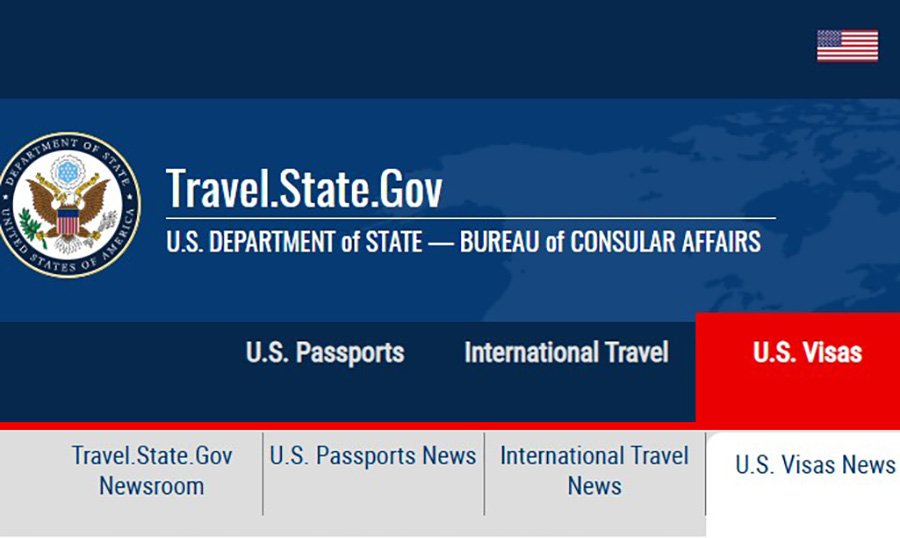USA Introduces Mandatory Visa Interviews

Starting September 2, 2025, most applicants for U.S. nonimmigrant visas will be required to attend an in-person interview. According to a notice from the U.S. State Department , exemptions for children under 14 and seniors over 79 are being revoked.
The Times [leech=https://timesofindia.indiatimes.com/education/news/us-tightens-visa-rules-with-in-person-interviews-now-made-mandatory-for-most-applicants-including-students-heres-what-you-need-to-know/articleshow/122968336.cms]clarifies that the stricter rules also apply to students (F and M visas), foreign professionals (H-1B), exchange program participants (J), as well as tourists and business visitors (B-1/B-2). For international students, this means additional steps, longer waiting times, and greater uncertainty when planning travel. Universities that rely on foreign students express concern: delays and increased bureaucracy could make the U.S. less attractive compared to Canada, the UK, and Australia, where systems are considered more predictable and student-friendly.
For H-1B visa holders—skilled professionals who make up a significant share of the U.S. IT and healthcare workforce—the rule also brings new challenges. When changing jobs or extending their status, they must leave the U.S. to obtain a new visa stamp. With mandatory interviews, this could result in long delays and the risk of not returning to work on time. Family plans may also be disrupted. Employers will face consequences too: slower onboarding, delayed projects, and higher administrative costs.
Applicants for diplomatic and official visas (A-1, A-2, G-1–G-4, NATO-1–NATO-6, and TECRO E-1) remain exempt. The list of exceptions also includes holders of previously issued full-term visas in categories B-1, B-2, B1/B2, or border crossing cards for Mexican citizens. However, two conditions must be met: the prior visa expired no more than 12 months ago, and the applicant was at least 18 years old when it was issued.
Among the general criteria for renewing tourist visas without an interview are:
Submitting the application in the country of citizenship or residence;
No prior visa refusals (unless overcome or waived);
No indications of potential visa ineligibility.
Even so, the final decision rests with the consular officer, who may still require an interview at their discretion.
Additionally, starting October 1, 2025, U.S. authorities will introduce a new Visa Integrity Fee of $250 for most nonimmigrant visa applicants . From 2026, the fee will be adjusted annually for inflation. The law provides for refunds if visa conditions are fully respected. Exemptions apply only to Visa Waiver Program travelers, holders of A and G visas, and most citizens of Canada and Bermuda.
Previously, the main cost was the consular MRV Fee of $185. Now, with the Integrity Fee added, the base cost will rise to at least $435. In some cases, costs will be higher due to additional charges such as SEVIS for students or reciprocity fees for certain nationalities. According to NAFSA, the goal of the new measure is to encourage compliance with visa rules and offset potential state losses from violations.
[url=https://internationalinvestment.biz/news/6098-pora-vernutsja-domoj-v-ssha-vypustili-rolik-dlja-migrantov-iz-rossii.html]“Time to Go Home”: U.S. Releases Video for Migrants from Russia
At the same time, the cost of several other services is rising. The fee for land entry under Form I-94 will increase from $6 to $24, while the ESTA electronic authorization for visa-free travelers will rise to $40. New charges are being introduced for humanitarian categories: $100 for asylum applications, $550 for TPS work permits, and $1,000 for participation in the humanitarian parole program.
Experts advise applicants to file documents well in advance, as interview slots fill up quickly, and to regularly check consular websites since rules and availability may differ. Applicants should also prepare documents more carefully and factor in the increased costs.
These visa changes are part of a broader immigration reform package under the One Big Beautiful Bill Act, signed on July 4, 2025. The legislation reflects the Trump administration’s policy of tightening control. The expected outcomes include enhanced national security, reduced visa fraud, and a labor market more accessible to American workers.








